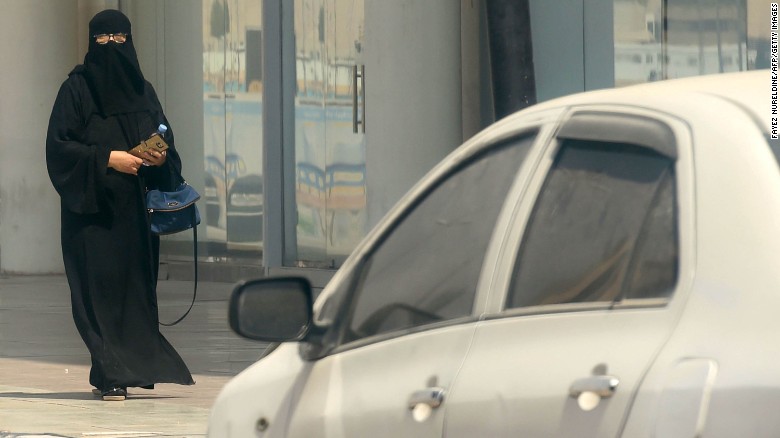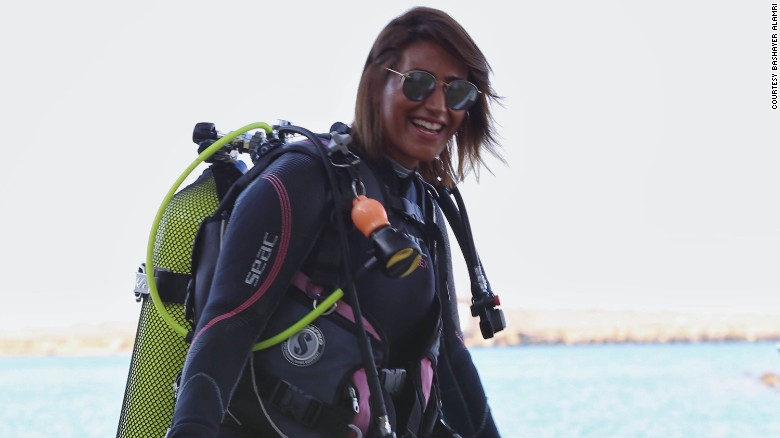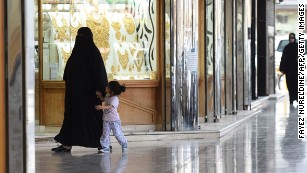Text pasted in below.
Jeddah, Saudi Arabia (CNN)Women in Saudi Arabia have been celebrating the news that they will finally be able to drive, a landmark step that brings the conservative kingdom in line with the rest of the world and will allow many more women to work.
The Saudi Foreign ministry announced Tuesday that a royal decree has been issued that will allow women to drive by next June.
"This
is a historic big day in our kingdom," Prince Khaled bin Salman, Saudi
Arabia's ambassador to the US, said Tuesday in a briefing with
reporters.
The move follows years of activism and appeals both from within and outside the Gulf nation.
Kholoud
Attar, a 32-year-old Saudi designer and magazine owner who has been
running her business for 10 years, told CNN the change would make a
"huge difference" both to her and to her female employees.
"Being
able to drive really facilitates a lot of logistics and helps with
shaving off the time to get things done," she said. "It's so thrilling
to be able to do this."
For her
female workers, the biggest gain will be in not having to pay for a
driver or other transportation out of their salaries, Attar said.
Employing a driver currently eats up a third of the average monthly
salary for her staff members, who may also have to find the money for
their children's care or education, she said.
As
for those who remain opposed to women driving, Attar said, their voices
"just became much quieter" thanks to the government saying it would be
allowed.
'Huge battle won'
Manal al-Sharif, one of the women behind the Women2Drive campaign
in Saudi Arabia, said the magnitude of the decision to allow women to
drive "won't make sense" to those outside the country, "but if you live
in Saudi Arabia, it's a huge battle that was won today."
She celebrated the victory Tuesday by posting a photo on Twitter of herself behind the wheel of a car.
Sharif, who now lives in
Australia, was jailed in Saudi Arabia 2011 after posting a video on
YouTube of herself driving a car. The act provoked death threats and
spurred her to start the campaign.
Speaking
to CNN from Australia, she hailed Saudi Arabia's "new leadership" as
young and "courageous." There will be a "huge backlash" from "the
extremist Islamists in my country," she said. "It won't go unnoticed."
Economic stagnation, she said, was a big impetus for the decision.
"They
cannot afford keeping the women in the back seat. They want to make
women fully involved in the economy, and you can't do that -- you can't
assign a woman to be in a political position or in a government
position, and she still can't drive her own car."
'Life will be faster'
Nouf
Alosaimi, a 29-year-old diving instructor based in Jeddah, told CNN
that even with a driver, it was a hassle arranging trips and scheduling
work appointments.
"Life will be
faster," she said, adding that she was looking forward most of all to
the adventure that will come with driving her own car.
"I
live in a country that I can't explore," she said. "I've always wanted
to explore the kingdom's coasts... I can't take someone I don't know to
drive me to these places and my brothers are too busy to take me on long
trips."
Alosaimi, who recently
returned to Saudi Arabia from abroad because of an increase in demand
for diving among women, said the decision would increase tourism
revenues, not just because of the expected increase in women tourists
but also thanks to women-run tourism businesses.
Restrictive rules remain
The
Kingdom of Saudi Arabia follows a strict form of Wahhabi Islam that
bans the mixing of sexes at public events and places numerous curbs on
women, including needing the permission of a male guardian to work or
travel. These restrictions are enforced by religious police.
Saudi women will not have to get permission from their male guardians to take driving lessons, ambassador bin Salman told CNN.
However, rules that govern the guardianship of women will continue to restrict many aspects of everyday life for the country's female population.
Liesl
Gerntholtz, executive director of the Women's Rights Division at Human
Rights Watch, told CNN that while being allowed to drive was a "very
important step," there was still a long way to go for Saudi women.
"This
prohibition on driving is just one in a vast series of laws and
policies which prevent women from doing many things," she said. "The
guardianship rule stops women from making every decision in her life
without the assistance of a male relative, even if that relative is her
7-year-old son."
Economic gains
The
move to ease some restrictions on women has huge implications for the
Saudi economy and women's ability to work. It is the latest in a series
of changes that have been rippling through Saudi Arabia since the rise
of 32-year-old Crown Prince Mohammed bin Salman.
The
crown prince, appointed to the position by his father in June, is
spearheading a plan to reform and transform the Saudi economy by 2030
and, in line with that goal, increase the number of women in the
workforce.
Marriam
Mossalli, a Saudi entrepreneur who founded a Jeddah-based consultancy
firm specializing in luxury marketing, Niche Arabia, told CNN that "with
Crown Prince Mohammed Bin Salman, things are happening quite quickly,
at a 'millennial' speed," compared with the past.
The decision to let women drive will allow the debate to move on to other, more important issues, she said.
"We
can go now beyond that and look at the real issues we have, more
entrepreneurs, more women in the workforce, and this is why the ban was
lifted, to facilitate putting women in the workforce," she said.
"A
driver can be costly, around $400-800 a month, while an average entry
level income for a woman working for example as a school teacher is
$1,600... almost half of your salary is going to a driver. This is an
economical decision and a human rights one."
Mossalli,
a social media influencer whose company helped to organize the first
public sports day for women in Saudi history, added: "Being conservative
and contemporary are not mutually exclusive. You can be a modern
conservative Saudi."
Conservative concerns
Throughout
Wednesday, the leading hashtag in the Saudi Twittersphere was against
women driving. Many social media users expressed concerns that allowing
women to drive would violate the kingdom's strict rules on gender
segregation.
Adnan el-Bar, 52,
deputy director of Jeddah municipality council, told CNN the issues
raised after the announcement ranged from infrastructure challenges to
reservations about the possible social changes.
But,
he said, the government has already laid out infrastructure changes
that will be put in place, including setting up driving schools for
women and special entities to issue driving licenses, and providing
support for female drivers in case their car breaks down.
El-Bar
said he didn't expect a huge increase in number of vehicles on the road
once the decision is implemented. "I expect 50% of women will not let
go of their drivers," he said, although this could change as more women
join the job market as transportation costs drop.
"Time
has come for a cultural change," he said. "Now, the debate has moved
from the social realm to the family. It will be up for each family to
decide."
Decisions would be based
on many variables, from the cost of buying a new car to family
traditions and religious beliefs, he said.
The
social repercussions are unpredictable, El-Bar added. While one concern
is a potential backlash from conservative society against female
drivers, El-Bar said that even if such incidents occur, they would be
isolated cases rejected by Saudi society.
"This
is a sovereign decision by the government," he said. "This is not a
victory for one side over the other; all decisions are for the country's
interests ... to move the wheel of development forward."
The
Saudi Senior Scholars Council, Saudi Arabia's highest religious body,
"commended" the royal order allowing women to drive in a statement
Wednesday, Saudi state news agency SPA reported, saying there was no
religious reason to prevent women driving vehicles.




